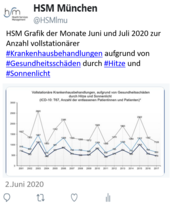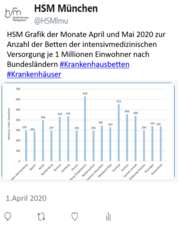Institutionalization in incident dementia cases in comparison to age- and sex- matched controls: a 5-year follow-up from Germany
| Autoren/Herausgeber: |
Schulze, J. van den Bussche, H. Kaduszkiewicz, H. Koller, D. Hoffmann, F. |
|---|---|
| Erschienen: | 2015 |
| Publikationsart: | Articles in Refereed Journals (International) |
| ISBN/ISSN: | 0933-7954 |
| erschienen in: | Soc Psychiatry Psychiatr Epidemiol |
| Weitere Quellenangabe: | Volume 50, Issue 1, pp 143-151 |
Abstract
Background
Dementia is a main reason for nursing home admission. Information on institutionalization is often based on studies of limited methodological quality. We aimed to analyze time until nursing home admission since first coding of dementia diagnosis and factors associated with institutionalization in incident dementia patients compared to non-demented controls.
Methods
We analyzed claims data of a German Health insurance company including a cohort of 1,440 patients with a first diagnosis of dementia and 6,988 age- and sex-matched controls aged 65 years and older. The follow-up was up to 5 years. We used Kaplan–Meier analysis for examining time until nursing home admission and cox regression for estimating crude and adjusted Hazard ratios.
Results
Dementia patients and controls were on average 78 years and about 55 % were males. The mean time to nursing home admission was 4.0 years in patients with dementia and 4.6 years for controls. After the 5-years observation-period 62.7 % (95 % CI 59.0–66.1) of dementia patients still lived in the community in comparison to 86.2 % (95 % CI 85.2–87.2) of controls. Cox regression models show that the risk for institutionalization is 3.45 (95 % CI 3.05–3.90) times higher in dementia patients in comparison to controls when adjusted for sex, age, and comorbidity.
Conclusions
Our analysis shows a significant influence of dementia on institutionalization in comparison to age- and sex-matched controls, especially in the youngest age groups. Hence, the results add substantial information on the disease progression of dementia and are, therefore, of great importance for health-care as well as long-term care planning.





